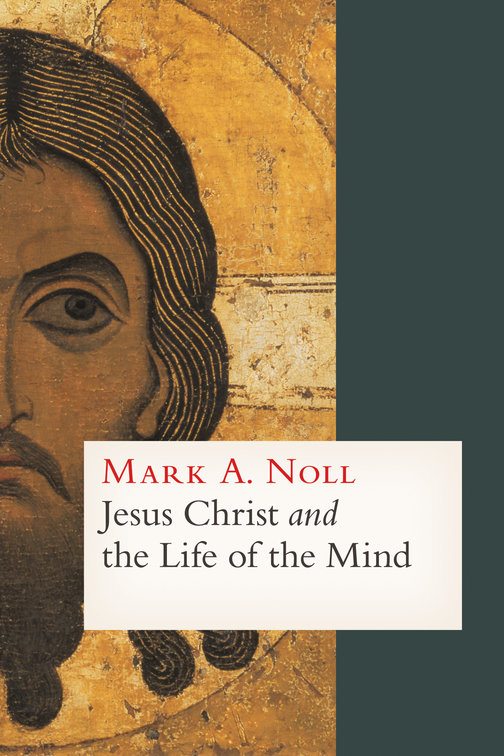Young evangelicals toiling as graduate students in history departments throughout North America have long looked to Mark Noll as a model. Along with George Marsden, Nathan Hatch, Harry Stout, and Joel Carpenter, Noll has come to epitomize the Christian historian for an entire generation of young scholars. For many evangelical historians of my generation, Noll has been something of a mentor and model, even if only from a distance, exemplifying how a distinctly evangelical identity should undergird a robust commitment to the best historical scholarship.
For many of us, Noll’s The Scandal of the Evangelical Mind was something of a call to arms. For those who lamented the intellectual dilution of their own evangelical or fundamentalist traditions, Noll’s incisive project suggested that something better was possible. Now, nearly 20 years later, Noll’s thesis from Scandal seems almost commonplace, joined by a host of monographs and articles from prominent Christian scholars and leaders who have also called for a recovery of serious Christian scholarship to counter the spirit of the age.
If Scandal diagnosed the malady of evangelical anti-intellectualism, Noll’s new book attempts to prescribe the corrective. Jesus Christ and the Life of the Mind makes one rather simple, yet massive, argument: “coming to know Christ provides the most basic possible motive for pursuing the tasks of human learning” (x).
Scholarship and Atonement
There is much to appreciate about Jesus Christ and the Life of the Mind. For one, Noll pointedly centers the entire Christian life of the mind in the person and work of Christ. Moving beyond vague considerations of the intersection between “faith and reason,” Noll has provided a model effort in applying a distinctly Christological framework to the life of the mind. This is no small thing, and Noll rightly grounds it in the gospel proclamation: “The Jesus Christ who saves sinners is the same Christ who beckons his followers to serious use of their minds for serious explorations of the world” (41).
Perhaps Noll’s most helpful contribution can be found in his chapter connecting scholarship with the doctrine of the atonement. It is one thing to speak in vague generalities about the centrality of Christ in the life of the mind. It is quite another—and all the more necessary—to connect the very heart of the gospel message to Christian scholarship. For example, those in the social sciences simply cannot presume models of social reality that “begin with human innocence . . . or from rational choice capitalism” (71). As Noll notes, the Christian scholar must be the one who cannot abide by theoretical models that deny the realities of human sinfulness and the need for redemption.

Jesus Christ and the Life of the Mind
Mark A. Noll
In The Scandal of the Evangelical Mind (1994) Mark Noll offered a bleak, even scathing, assessment of the state of evangelical thinking and scholarship. Now, nearly 20 years later, in a sequel that is more hopeful than despairing―more attuned to possibilities than to problems―Noll updates his assessment and charts a positive way forward for evangelical scholarship.
Finally, Noll is to be commended for giving attention to several specific disciplines and attempting to tease out the implications of his thesis for each one. His reflections on the doctrine of providence and historiography should prove especially helpful for anyone interested in these questions. His call for a consideration of the “fullness of divine providence” is timely and helps make the case for the value of scholarship that accounts not only for Christian history, but also for the ways in which God’s providence in all the affairs of humanity, even the most “secular” questions of social, political, or economic history.
Unwilling to Restrict
However, Noll’s book is not without faults. These primarily stem from an apparent unwillingness to construct any semblance of a restrictive confessional evangelical identity. While suggesting that he writes primarily as an evangelical for evangelicals, the book is anchored in the historic apostolic creeds of the Christian church. This is certainly capable of providing a robust Christology to undergird the Christian life of the mind. But in Noll’s case, it seems that relying on the historic creeds also allows him to skirt issues that are at the heart of evangelical identity—and therefore inherently sectarian or confessionally restrictive. Foremost among these is the question of biblical inerrancy. It would seem to many of us that a distinctly Christian life of the mind, rooted in the person and work of Christ, would also be one that receives the word of Christ as entirely true and trustworthy in all its claims. But by not engaging with this critical question, Noll allows himself the latitude to propose a model of scientific scholarship that can, in his mind, evade some of the day’s most pressing—and mounting—theological challenges to evangelical integrity. For example, while Noll seems content to casually dismiss creationists, lumping them with “deductive dogmatists,” he is unwilling to engage with the growing debate over the historicity of Adam, a question with massive implications for biblical understandings of the person and work of Christ.
Finally, Noll’s book at times rings of the most strident and elitist forms of evangelical condescension. I’ll admit that as a Southern Baptist I easily grow weary of constant screeds against my denomination’s supposed pervasive intellectual backwardness and disinterest in developing anything even close to a respectable life of the mind. With all the respect to Noll I can muster, these caricatures are not only unhelpful but also tired and inaccurate. The last 20 years have seen the recovery of a number of Baptist institutions in the South for traditional evangelicalism, including the Southern Baptist Theological Seminary, Union University, and Houston Baptist University. These institutions evidence vital signs of life and suggest that Southern Baptists may indeed be better prepared to invest in serious and sustained Christian intellectual engagement than Noll is willing to concede.
Rightly Chagrined
For a generation, evangelical scholars such as Noll have called for evangelicals to invest in scholarly development and to participate in the academic enterprise at every possible level of American life. Rightly chagrined with the ghettoization of fundamentalism, they carried on the vision of postwar neo-evangelicalism, hopeful that subsequent generations of evangelicals would be received, even at times celebrated, within their respective scholarly guilds. And historians such as Noll have personified this optimism, receiving well-earned acclaim from the community of historians. But many of us following in their trail are increasingly skeptical, wondering if “playing the game” within the guild will leave our evangelical identity intact.
We can only hope that Jesus Christ and the Life of the Mind represents the beginnings of a desperately needed conversation within evangelicalism. Mark Noll has helpfully pointed out how a Christological vision for the life of the mind can and should undergird other ideas of Christian vocation, compelling God’s people into furthering and developing Christian scholarship. Although some of Noll’s proposals will be unsatisfactory to many, they should prompt thoughtful reflection and response. Noll has contributed much to the conversation, and we should be most appreciative. Subsequent generations of Christian scholars are indebted to him in this work but will have to go even further in clearly identifying the ways in which our understanding of God’s revealed truth in Scripture governs and informs all other avenues of revelation.

































